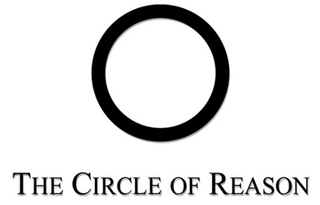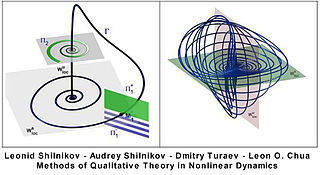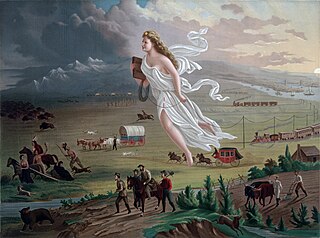 W
WAnalytic philosophy is a branch and tradition of philosophy using analysis which is popular in the Western World and particularly the Anglosphere, which began around the turn of the 20th century in the contemporary era in the United Kingdom, United States, Canada, Australia, New Zealand and Scandinavia and continues today. Writing in 2003, John Searle claimed that "the best philosophy departments in the United States are dominated by analytic philosophy."
 W
WAnalytical Thomism is a philosophical movement which promotes the interchange of ideas between the thought of Thomas Aquinas, and modern analytic philosophy.
 W
WAristotelianism is a philosophical tradition inspired by the work of Aristotle, usually characterized by deductive logic and an analytic inductive method in the study of nature and natural law. It answers why-questions by a scheme of four causes, including purpose or teleology, and emphasizes virtue ethics. Aristotle and his school wrote tractates on physics, biology, metaphysics, logic, ethics, aesthetics, poetry, theatre, music, rhetoric, psychology, linguistics, economics, politics, and government. Any school of thought that takes one of Aristotle's distinctive positions as its starting point can be considered "Aristotelian" in the widest sense. This means that different Aristotelian theories may not have much in common as far as their actual content is concerned besides their shared reference to Aristotle.
 W
WThe Circle of Reason (TCOR) is a Twin Cities, Minnesota-based international society of theists, atheists, conservatives, and liberals who espouse the social philosophy of pluralistic rationalism.
 W
WClassical Marxism refers to the economic, philosophical and sociological theories expounded by Karl Marx and Friedrich Engels as contrasted with later developments in Marxism, especially Marxism–Leninism.
 W
WComputational creativity is a multidisciplinary endeavour that is located at the intersection of the fields of artificial intelligence, cognitive psychology, philosophy, and the arts.
 W
WDataism is a term that has been used to describe the mindset or philosophy created by the emerging significance of big data. It was first used by David Brooks in The New York Times in 2013. More recently, the term has been expanded to describe what social scientist Yuval Noah Harari has called an emerging ideology or even a new form of religion, in which "information flow" is the "supreme value".
 W
WDeconstruction is an approach to understanding the relationship between text and meaning. It was originated by the philosopher Jacques Derrida (1930–2004), who defined the term variously throughout his career. In its simplest form it can be regarded as a criticism of Platonism and the idea of true forms, or essences, which take precedence over appearances. Deconstruction instead places the emphasis on appearance, or suggests, at least, that essence is to be found in appearance. Derrida would say that the difference is "undecidable", in that it cannot be discerned in everyday experiences.
 W
WEclecticism is a conceptual approach that does not hold rigidly to a single paradigm or set of assumptions, but instead draws upon multiple theories, styles, or ideas to gain complementary insights into a subject, or applies different theories in particular cases. However, this is often without conventions or rules dictating how or which theories were combined.
 W
WIn philosophy, empiricism is a theory that states that knowledge comes only or primarily from sensory experience. It is one of several views of epistemology, along with rationalism and skepticism. Empiricism emphasizes the role of empirical evidence in the formation of ideas, rather than innate ideas or traditions. However, empiricists may argue that traditions arise due to relations of previous sense experiences.
 W
WThe Age of Enlightenment was an intellectual and philosophical movement that dominated the world of ideas in Europe during the 18th century. The Enlightenment included a range of ideas centered on the pursuit of happiness, sovereignty of reason, and the evidence of the senses as the primary sources of knowledge and advanced ideals such as liberty, progress, toleration, fraternity, constitutional government, and separation of church and state.
 W
WEpicureanism is a system of philosophy founded around 307 BC based upon the teachings of the ancient Greek philosopher Epicurus. Epicureanism was originally a challenge to Platonism. Later its main opponent became Stoicism.
 W
WThe Ethical movement, also referred to as the Ethical Culture movement, Ethical Humanism or simply Ethical Culture, is an ethical, educational, and religious movement that is usually traced back to Felix Adler (1851–1933). Individual chapter organizations are generically referred to as "Ethical Societies", though their names may include "Ethical Society", "Ethical Culture Society", "Society for Ethical Culture", "Ethical Humanist Society", or other variations on the theme of "Ethical".
 W
WExistentialism ( or ) is a form of philosophical inquiry that explores the problem of human existence and centers on the experience of thinking, feeling, and acting. In the view of the existentialist, the individual's starting point has been called "the existential angst," a sense of dread, disorientation, confusion, or anxiety in the face of an apparently meaningless or absurd world. Existentialist thinkers frequently explore issues related to the meaning, purpose, and value of human existence.
 W
WThe Five-Percent Nation, sometimes referred to as the Nation of Gods and Earths (NGE/NOGE) or the Five Percenters, is a Black nationalist movement influenced by Islam which was founded in 1964 in the Harlem section of the borough of Manhattan, New York City, by Allah the Father, who was previously known as Clarence 13X and, before that, Clarence Edward Smith.
 W
WFourierism is the systematic set of economic, political, and social beliefs first espoused by French intellectual Charles Fourier (1772–1837). Based upon a belief in the inevitability of communal associations of people who worked and lived together as part of the human future, Fourier's committed supporters referred to his doctrines as associationism. Political contemporaries and subsequent scholarship has identified Fourier's set of ideas as a form of utopian socialism—a phrase that retains mild pejorative overtones.
 W
WGerman idealism was a philosophical movement that emerged in Germany in the late 18th and early 19th centuries. It developed out of the work of Immanuel Kant in the 1780s and 1790s, and was closely linked both with Romanticism and the revolutionary politics of the Enlightenment. The best-known thinkers in the movement, besides Kant, were Johann Gottlieb Fichte, Friedrich Wilhelm Joseph Schelling, Arthur Schopenhauer, Georg Wilhelm Friedrich Hegel, and the proponents of Jena Romanticism. August Ludwig Hülsen, Friedrich Heinrich Jacobi, Gottlob Ernst Schulze, Karl Leonhard Reinhold, Salomon Maimon and Friedrich Schleiermacher also made major contributions.
 W
WHumanism is a philosophical stance that emphasizes the individual and social potential and agency of human beings. It considers human beings as the starting point for serious moral and philosophical inquiry.
 W
WIntellectualism refers to related mental perspectives that emphasize the use, the development, and the exercise of the intellect; and also identifies the life of the mind of the intellectual person. In the field of philosophy, “intellectualism” is synonymous with rationalism, knowledge derived from reason. Moreover, the term intellectualism can also have a socially negative connotation about a man or woman intellectual who gives “too much attention to thinking” and who shows an “absence of affection and feeling”.
 W
WInternet art is a form of new media art distributed via the Internet. This form of art circumvents the traditional dominance of the physical gallery and museum system. In many cases, the viewer is drawn into some kind of interaction with the work of art. Artists working in this manner are sometimes referred to as net artists.
 W
WKitsch painting is an international movement made up of classical painters, a result of a 24 September 1998 speech and philosophy given by the Norwegian figurative artist, Odd Nerdrum, later clarified in his book On Kitsch with Jan-Ove Tuv and others. The movement incorporates the techniques of the Old Masters with narrative, romanticism, and emotionally charged imagery. The movement defines Kitsch as synonymous with the arts of ancient Rome or the techne of ancient Greece. Kitsch painters embrace kitsch as a positive term not in opposition to "art", but as its own independent superstructure. Kitsch painters assert that Kitsch is not an art movement, but a philosophical movement separate from art. The Kitsch movement has been considered an indirect criticism of the contemporary art world, but according to Nerdrum, this is not the expressed intention.
 W
WLaVeyan Satanism is a nontheistic religion founded in 1966 by the American occultist and author Anton Szandor LaVey. Scholars of religion have classified it as a new religious movement and a form of Western esotericism. It is one of several different movements that describe themselves as forms of Satanism.
 W
WThe linguistic turn was a major development in Western philosophy during the early 20th century, the most important characteristic of which is the focusing of philosophy and the other humanities primarily on the relations between language, language users, and the world.
 W
WLogical positivism, later called logical empiricism, and both of which together are also known as neopositivism, was a movement in Western philosophy whose central thesis was the verification principle. This theory of knowledge asserted that only statements verifiable through direct observation or logical proof are meaningful in terms of conveying truth value, information or factual content. Starting in the late 1920s, groups of philosophers, scientists, and mathematicians formed the Berlin Circle and the Vienna Circle, which, in these two cities, would propound the ideas of logical positivism.
 W
WMarxism is a method of socioeconomic analysis that uses a materialist interpretation of historical development, better known as historical materialism, to understand class relations and social conflict as well as a dialectical perspective to view social transformation. It originates from the works of 19th-century German philosophers Karl Marx and Friedrich Engels. As Marxism has developed over time into various branches and schools of thought, there is currently no single definitive Marxist theory.
 W
WObjectivism is a philosophical system developed by Russian-American writer Ayn Rand. Rand first expressed Objectivism in her fiction, most notably The Fountainhead (1943) and Atlas Shrugged (1957), and later in non-fiction essays and books. Leonard Peikoff, a professional philosopher and Rand's designated intellectual heir, later gave it a more formal structure. Rand described Objectivism as "the concept of man as a heroic being, with his own happiness as the moral purpose of his life, with productive achievement as his noblest activity, and reason as his only absolute". Peikoff characterizes Objectivism as a "closed system" insofar as its "fundamental principles" were set out by Rand and are not subject to change. However, he stated that "new implications, applications and integrations can always be discovered".
 W
WOrdinary language philosophy is a philosophical methodology that sees traditional philosophical problems as rooted in misunderstandings philosophers develop by distorting or forgetting what words actually mean in everyday use. "Such 'philosophical' uses of language, on this view, create the very philosophical problems they are employed to solve." Ordinary language philosophy is a branch of linguistic philosophy closely related to logical positivism.
 W
WOrthodox Marxism is the body of Marxist thought that emerged after the death of Karl Marx (1818–1883) and which became the official philosophy of the majority of the socialist movement as represented in the Second International until the First World War in 1914. Orthodox Marxism aims to simplify, codify and systematize Marxist method and theory by clarifying the perceived ambiguities and contradictions of classical Marxism.
 W
WPost-contemporary (PoCo) is a forward-looking aesthetic philosophy distinguished by a re-constructive, global, human ethos which posits that the aesthetic experience is universal to humanity, and that this experience can inspire understanding and transformation. It has developed in tandem with new theories of Emergence in Complexity science, as well as advances in Biosemiotics. In art historical terms, “modern” and “contemporary” arts are limited to their era and are defined by stylistic and philosophical parameters - chief among them, a critique of the classical European tradition and constructive philosophy, and secondly, the Contemporary ethos is characterized by an emphasis on transient or exclusively contemporary issues which reflect the zeitgeist. Following the legacy of Modernism, Post-Modernism and Contemporary art follow the tradition of Deconstruction and questioning, while Post Contemporary emphasizes generating new, constructive hypotheses. However, modeled after the Scientific Method, both modes are inter-dependent as the question|answer cannot exist without each other. Thus, Post-Contemporary views the history of the humanities as branching and pluralist, rather than a linear path of development. Consequently, PoCo has chosen a forking path, builds upon knowledge from all eras, and values quality, sublimity, and empathy above novelty. PoCo emphasizes empathy for all, regardless of race, gender, sexual orientation, or creed.
 W
WPragmatism is a philosophical tradition that considers words and thought as tools and instruments for prediction, problem solving, and action, and rejects the idea that the function of thought is to describe, represent, or mirror reality. Pragmatists contend that most philosophical topics—such as the nature of knowledge, language, concepts, meaning, belief, and science—are all best viewed in terms of their practical uses and successes.
 W
WThe Process was an art and philosophy collective formed in the early 1990s and birthed at the same time as, and with a subset of the same people from, the studio work for the Skinny Puppy album The Process. Early contributors included Nivek Ogre, Genesis P-Orridge, William Morrison, and Loki der Quaeler. The Process collective aimed to connect the international industrial music community via the nascent internet while ostensibly reviving the "deviant psychotherapy cult" Process Church of the Final Judgement. Members were known as Processians or Processors.
 W
WProgress is the movement towards a refined, improved, or otherwise desired state. In the context of progressivism, it refers to the proposition that advancements in technology, science, and social organization have resulted, and by extension will continue to result, in an improved human condition; the latter may happen as a result of direct human action, as in social enterprise or through activism, or as a natural part of sociocultural evolution.
 W
WRenaissance humanism was a revival in the study of classical antiquity, at first in Italy and then spreading across Western Europe in the 14th, 15th, and 16th centuries. During the period, the term humanist referred to teachers and students of the humanities, known as the studia humanitatis, which included grammar, rhetoric, history, poetry, and moral philosophy. It was not until the 19th century that this began to be called humanism instead of the original humanities, and later by the retronym Renaissance humanism to distinguish it from later humanist developments. During the Renaissance period most humanists were Christians, so their concern was to "purify and renew Christianity", not to do away with it. Their vision was to return ad fontes to the simplicity of the New Testament, bypassing the complexities of medieval theology. Today, by contrast, the term humanism has come to signify "a worldview which denies the existence or relevance of God, or which is committed to a purely secular outlook".
 W
WThe Russian nihilist movement was a philosophical, cultural, and revolutionary movement in the Russian Empire during the late 19th and early 20th centuries, which was the precursor to broader forms of the philosophy of nihilism. In Russian, the word nigilizm came to represent the movement's negation of pre-existing ideals. Even as it was yet unnamed, the movement arose from a generation of young radicals disillusioned with the social reformers of the past, and from a growing divide between the intelligentsia of the genteel and non-genteel social classes.
 W
WThe Scottish Enlightenment was the period in 18th- and early-19th-century Scotland characterised by an outpouring of intellectual and scientific accomplishments. By the eighteenth century, Scotland had a network of parish schools in the Lowlands and five universities. The Enlightenment culture was based on close readings of new books, and intense discussions took place daily at such intellectual gathering places in Edinburgh as The Select Society and, later, The Poker Club, as well as within Scotland's ancient universities.
 W
WSkepticism or scepticism is generally a questioning attitude or doubt towards one or more putative instances of knowledge which are asserted to be mere belief or dogma. Formally, skepticism is a topic of interest in philosophy, particularly epistemology. More informally, skepticism as an expression of questioning or doubt can be applied to any topic, such as politics, religion, or pseudoscience. It is often applied within restricted domains, such as morality, theism, or the supernatural.
 W
WSwarāj can mean generally self-governance or "self-rule", and was used synonymously with "home-rule" by Maharishi Dayanand Saraswati and later on by Mahatma Gandhi, but the word usually refers to Gandhi's concept of Indian independence from foreign domination. Swaraj lays stress on governance, not by a hierarchical government, but by self-governance through individuals and community building. The focus is on political decentralisation. Since this is against the political and social systems followed by Britain, Gandhi's concept of Swaraj advocated India's discarding British political, economic, bureaucratic, legal, military, and educational institutions. S. Satyamurti, Chittaranjan Das and Motilal Nehru were among a contrasting group of Swarajists who laid the foundation for parliamentary democracy in India.
 W
WTheistic Humanism is the combination of humanistic ideals, particularly the idea that ideals and morals stem from society, with a belief in the supernatural and transcendental.
 W
WThomism is the philosophical and theological school that arose as a legacy of the work and thought of Thomas Aquinas (1225–1274), the Dominican philosopher, theologian, and Doctor of the Church. In philosophy, Aquinas' disputed questions and commentaries on Aristotle are perhaps his best-known works.
 W
WThe Traditionalist or Perennialist School is a group of 20th- and 21st-century thinkers who believe in the existence of a perennial wisdom or perennial philosophy, primordial and universal truths which form the source for, and are shared by, all the major world religions.
 W
WTranshumanism is a philosophical movement, the proponents of which advocate and predict the enhancement of the human condition by developing and making widely available sophisticated technologies able to greatly enhance longevity, mood and cognitive abilities.
 W
WTrivialism is the logical theory that all statements are true and that all contradictions of the form "p and not p" are true. In accordance with this, a trivialist is a person who believes everything is true.
 W
WUnitarian Universalism (UU) is a liberal religion characterized by a "free and responsible search for truth and meaning". Unitarian Universalists assert no creed, but instead are unified by their shared search for spiritual growth, guided by a dynamic, "living tradition". Currently, these traditions are summarized by the Six Sources and Seven Principles of Unitarian Universalism, documents recognized by all congregations who choose to be a part of the Unitarian Universalist Association. These documents are 'living', meaning always open for revisiting and reworking. Unitarian Universalist (U.U.) congregations include many atheists, agnostics, and theists within their membership—and there are U.U. churches, fellowships, congregations, and societies around the world. The roots of Unitarian Universalism lie in liberal Christianity, specifically unitarianism and universalism. Unitarian Universalists state that from these traditions comes a deep regard for intellectual freedom and inclusive love. Congregations and members seek inspiration and derive insight from all major world religions.
 W
WWestern esotericism, also known as esotericism, esoterism, and sometimes the Western mystery tradition, is a term scholars use to categorise a wide range of loosely related ideas and movements that developed within Western society. These ideas and currents are united since they are largely distinct both from orthodox Judeo-Christian religion and Enlightenment rationalism. Esotericism has pervaded various forms of Western philosophy, religion, pseudoscience, art, literature, and music—and continues to influence intellectual ideas and popular culture.